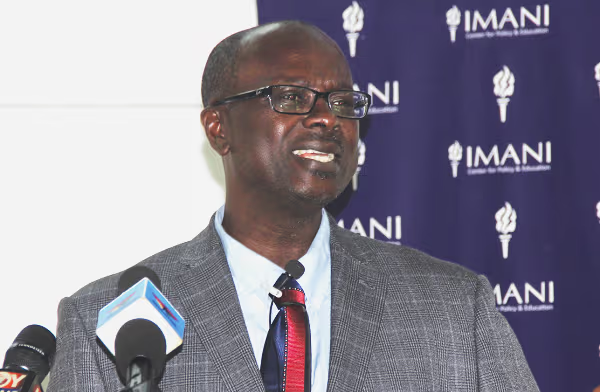Ferdinand | EducationGhana | September 19 | GTEC must tread cautiously in the UCC saga – Prof Asare
A private legal practitioner, Professor Stephen Kwaku Asare, has told the Ghana Tertiary Education Commission (GTEC) to be cautious in the issue with the Vice-Chancellor of the University of Cape Coast (UCC).GTEC has asked the Vice-Chancellor of the UCC, Professor Johnson Nyarko Boampong, to proceed on retirement, citing the compulsory retirement age of 60.
“Sir, for your guidance, Article 199 (l) stipulates that a public officer shall, except as otherwise provided in this Constitution, retire from the public service on attaining the age of sixty years.
“The Office of the Vice-Chancellor, being an office established under Section 7(1) of the University of Cape Coast Act, 1992 (PNDCL 278), is a public office under the meaning and intendment of Article 199(1). Hence, anyone acting in the office of the Vice-Chancellor is presumptively mandated to proceed on compulsory retirement upon attaining 60 years,” the letter stated.
GTEC also referenced the University of Cape Coast Statutes (2016), which set the Vice-Chancellor’s tenure at an initial four years, renewable for an additional three years, provided the statutory retirement age is not exceeded.
Read the full post here…
Related Links
Top 20 Colleges of Education in Ghana 2025 Rankings
Akrokerri College of Education Ranked Best in 2025
Education in Ghana: Accreditation and Standards
NSMQ 2025 Regional Hub Navigation
NSMQ 2025: Full List of Oti Region Schools, Seeded Teams, and Regional Qualifiers
NSMQ 2025: Full List of Western North Region Schools, Seeded Teams, and Regional Qualifiers
2025 SHS Admission Portals: Full List of Senior High and Technical Schools Online
CSSPS 2025: How to Check Your BECE School Placement Online
👉 Subscribe to our newsletter for expert insights on Ghana’s education system: educationghana.org/subscribe 📩 For partnerships and research support, contact: Ellisferdinand@ymail.com or Education.ghana@yahoo.com
OTHER IMPORTANT STORIES
- 5 Transformative Plans by Prof. Mawutor: UPSA’s Visionary Vice Chancellor Takes Charge
Apply Now: UPSA Distance Learning Programmes 2024/25 Academic Year – Flexible Online Education
UPSA Announces Availability of Professional Programmes for 2024/25 Academic Year: Apply Now
UPSA Announces Postgraduate Programmes for the 2024/2025 Academic Year
Undergraduate Programmes Offered at UPSA for the 2024/2025 Academic Year
WAEC Receives GH₵35 Million Boost for WASSCE 2024 Results Processing Amid Challenges
Discover more from EducationGhana
Subscribe to get the latest posts sent to your email.

























